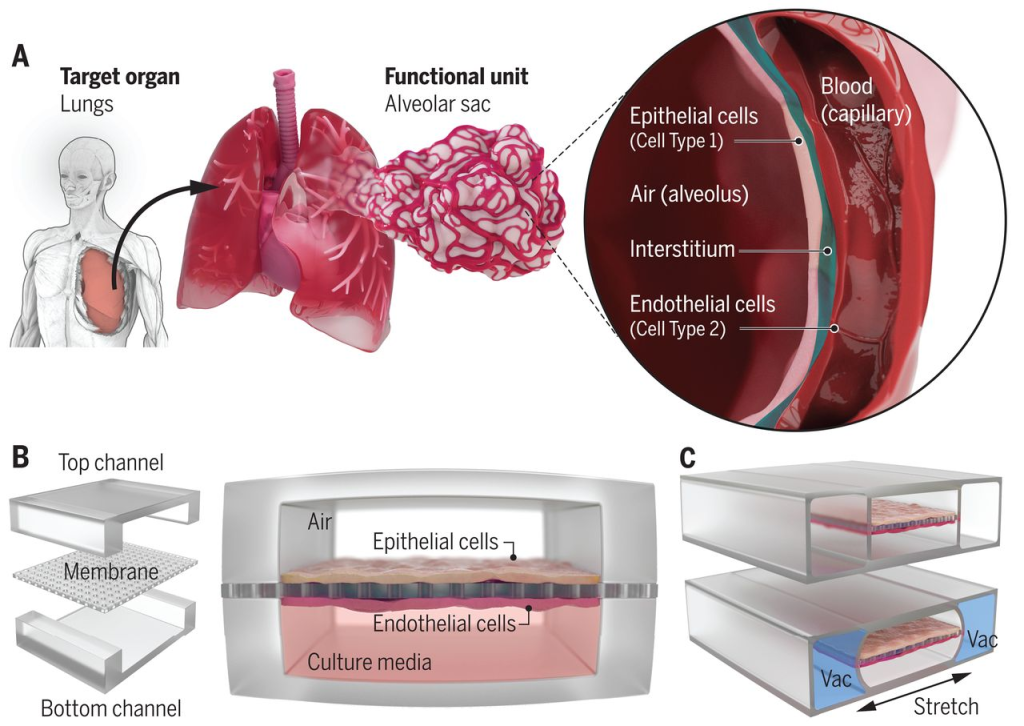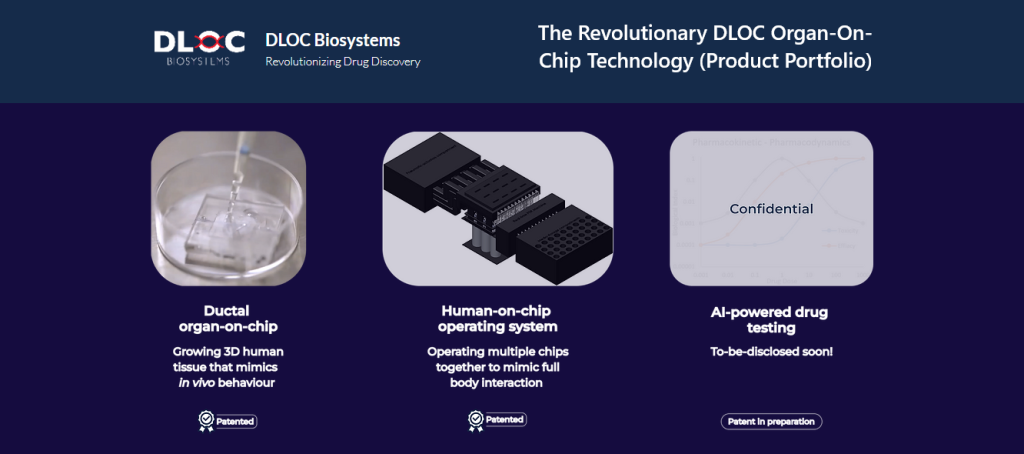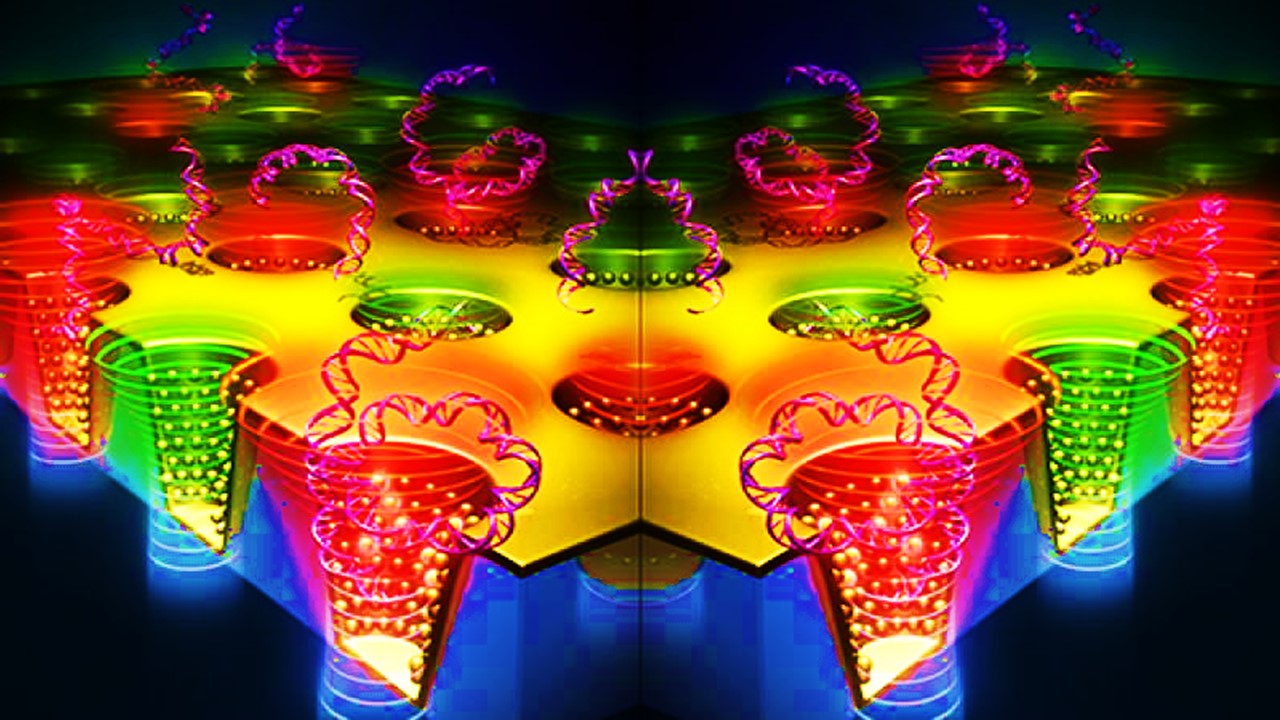In a groundbreaking move, DLOC Biosystems has strategically chosen Discovery Park, Kent, as the nucleus for its cutting-edge biology facility. This move marks a pivotal step in the company’s mission to expedite, secure, and economize drug development processes. The new biology lab, nestled within Discovery Park’s vibrant life science cluster, is poised to advance the frontiers of pharmaceutical innovation by furthering the development of DLOC’s state-of-the-art organ-on-a-chip technology. Moreover, the facility is geared to provide precise assay testing services to pharmaceutical companies, ushering in a new era of accuracy in drug discovery.
The Essence of Organ-on-a-Chip Technology
DLOC Biosystems’ flagship technology revolves around the creation of microchips that mimic the microenvironment in which cells thrive. These chips serve as a conducive setting for cellular growth and organization into tissues, presenting an optimal backdrop for large-scale and cost-effective drug testing. Unlike conventional pre-clinical testing models, DLOC’s innovation holds the promise of minimizing and eventually replacing animal testing. The technology stands as a beacon of hope for the industry, offering unprecedented accuracy in safety and efficacy data, potentially reshaping the future of drug development.

From Lebanon to the UK: A Strategic Expansion
With an engineering team firmly rooted in Lebanon, DLOC Biosystems set its sights on establishing a robust biology team in the UK. The selection of Discovery Park, a mere hour from London, was not arbitrary but a calculated decision based on the park’s well-established reputation as a premier hub for life sciences. Beyond immediate practicalities, the strategic move was fueled by the foresight of potential future expansion opportunities that the extensive ecosystem at Discovery Park provides. The site is not merely a location but a strategic choice aligned with DLOC’s aspirations for collaboration and networking in the thriving life sciences domain.

Visionary Leadership and Collaboration: Catalysts for Innovation
Wadah Malaeb, B.Eng., M.Eng., the CEO and Founder of DLOC Biosystems, shared insights into the decision-making process. Initially drawn to London for its talent pool, Malaeb encountered hurdles in the form of prohibitive costs for high-spec lab spaces and living expenses for potential employees. A visit to Discovery Park, however, proved transformative. Malaeb not only found state-of-the-art facilities but was equally impressed by the extensive business support offered by the Discovery Park team. According to Malaeb, the park and its surroundings offer an ideal backdrop to cultivate and expand the business, reflecting a sentiment of anticipation for integration into the vibrant Discovery Park community.

Chris Broom, B.Sc., Head of Business Development at Discovery Park, emphasized the park’s commitment to nurturing commercial innovation. Apart from providing access to cutting-edge facilities, DLOC Biosystems is positioned to leverage the collaborative potential within Discovery Park’s dynamic community of both start-ups and established companies. Broom expressed excitement about welcoming Wadah Malaeb and his team, envisioning a collaborative journey that not only supports the company’s growth but also delivers substantial benefits to the broader drug discovery industry.
The Road Ahead: Recruitment and Discovery Spark Program
DLOC Biosystems is actively recruiting a biology team leader to spearhead and build its nascent team at Discovery Park. Simultaneously, the company plans to expand its on-site engineering team, underscoring a commitment to fostering interdisciplinary collaboration. Additionally, DLOC is an active participant in the Discovery Spark program tailored for life science start-ups. This initiative positions the company to refine and develop its business offerings, emphasizing a forward-looking approach to innovation.
The selection of Discovery Park as the host for DLOC Biosystems’ biology facility represents a convergence of strategic vision, cutting-edge technology, and collaborative potential. The fusion of a visionary leadership team with a commitment to reshaping drug development and a supportive ecosystem at Discovery Park paints a promising picture for the future of pharmaceutical innovation. As DLOC Biosystems embarks on this transformative journey, the industry watches with anticipation, cognizant that the future of drug development might very well be unveiled at Discovery Park in Kent.
About DLOC Biosystems
DLOC Biosystems, born out of the mechanical engineering department at the American University of Beirut (AUB), traces its origins to a research project focused on studying breast cancer metastasis in mammary ducts. This initial endeavor birthed novel methods and tools in tissue culture, laying the foundation for the evolution of DLOC’s technology. Incubated at the AUB Darwazah Center during its nascent stage, the startup garnered crucial support, subsequently securing funding through victories in various local and international entrepreneurship competitions, including the prestigious Stars of Science innovation contest. This financial backing enabled DLOC to enhance, test, validate, and patent its groundbreaking technology.
Presently, DLOC Biosystems operates with a dedicated team of 21 individuals, channeling their efforts towards innovating new technologies, expanding customer and collaborative networks, and securing additional funding to advance the company’s mission.

At the core of DLOC’s innovative contributions is its organ-on-a-chip technology, designed to revolutionize drug development by rendering it faster, safer, and more cost-effective. The company’s chips create an environment where cells can grow and reorganize into tissues, mimicking the conditions within the human body. This offers an ideal platform for large-scale, affordable drug testing, facilitating a deeper understanding of the reasons behind drug failures and informing the development of superior drugs.
Notably, DLOC’s technology aligns with the FDA Modernization Act 2.0, aiming to reduce and replace animal testing by providing more accurate data on safety and efficacy compared to existing pre-clinical testing models. Additionally, the technology holds promise in the development of precision medicines, offering the capability to create patient-specific testing environments tailored to individual persons or diseases.
DLOC Biosystems articulates a clear vision: to create the premier invitro biomimetic platform that fosters safer, more precise, and personalized medicine. The company’s mission centers on crafting the most user-friendly and mimetic organ-on-a-chip device for in-vitro testing. The focus lies in developing innovative technology that accurately replicates in-vivo cell and tissue interactions within their micro-environments, ensuring the faithful recreation of tissue structure and spatial assembly.

DLOC’s journey is punctuated by notable accolades, including first prizes in esteemed competitions like Stars-of-Science (Qatar Foundation), Arab Entrepreneurship Rally (Bahrain Chamber of Commerce), LIRA Forum (Lebanese Ministry of Industry), and the Darwazah Student Entrepreneurship contest (AUB Darwazah Center). Notably, the company also received a grant award from the Kuwait Chamber of Commerce and secured the third prize at the MIT Enterprise Forum. These achievements underscore DLOC Biosystems’ commitment to advancing the frontiers of medical research and drug development.
For more information, visit dlocbiosystems.com.
About Discovery Park
Nestled in the heart of Kent, Discovery Park emerges as a transformative haven for businesses, catering to a spectrum ranging from innovative startups to flourishing multinationals. This 220-acre Science & Technology park stands as a testament to interdisciplinary innovation, fostering a dynamic community of visionary entrepreneurs and leaders.
Boasting state-of-the-art laboratories, modern offices, and unparalleled flexibility, Discovery Park aligns its efforts with businesses at every developmental juncture. The dedicated team collaborates with enterprises, providing the essential foundations required for growth, ensuring that nascent ideas evolve into thriving commercial innovations.

Situated within easy reach of the bustling metropolis of London, Discovery Park spearheads Kent’s burgeoning science and technology cluster. As an extension of the renowned Golden Triangle, the location affords privileged access to abundant resources and opportunities. However, what truly distinguishes this hub is its liberating expansiveness and the presence of open-air spaces that act as catalysts for creativity and innovation.
This unique fusion positions Discovery Park as the optimum setting for brilliant minds to unravel the potential of scientific breakthroughs, addressing global societal challenges with ingenuity. With 1.6 million square feet encompassing labs, offices, and manufacturing spaces, it accommodates a diverse community of over 160 businesses, employing more than 3,500 individuals.

The roots of Discovery Park trace back almost 70 years, as it began its journey as a center for pharmaceutical research and development in 1954 when Pfizer first acquired the site. With an illustrious history, the park has been instrumental in discovering groundbreaking medicines that enhance the health and quality of life for those grappling with critical diseases. Despite Pfizer’s sale of the site in 2012, the pharmaceutical giant continues to be an integral part of the Discovery Park community. Over 1,000 scientists, technicians, regulatory professionals, and business experts from Pfizer contribute to the site, collectively striving towards the creation of life-saving medicines for patients.
With an annual contribution of £324 million to the economy and recognition as one of the six Life Sciences Opportunity Zones in the UK, Discovery Park stands as a testament to the power of collaboration, innovation, and unwavering commitment to scientific progress.

Check Discovery Park’s Official Website to learn more.
Engr. Dex Marco Tiu Guibelondo, B.Sc. Pharm, R.Ph., B.Sc. CpE
Subscribe
to get our
LATEST NEWS
Related Posts

Molecular Biology & Biotechnology
Myosin’s Molecular Toggle: How Dimerization of the Globular Tail Domain Controls the Motor Function of Myo5a
Myo5a exists in either an inhibited, triangulated rest or an extended, motile activation, each conformation dictated by the interplay between the GTD and its surroundings.

Drug Discovery Biology
Unlocking GPCR Mysteries: How Surface Plasmon Resonance Fragment Screening Revolutionizes Drug Discovery for Membrane Proteins
Surface plasmon resonance has emerged as a cornerstone of fragment-based drug discovery, particularly for GPCRs.
Read More Articles
Designing Better Sugar Stoppers: Engineering Selective α-Glucosidase Inhibitors via Fragment-Based Dynamic Chemistry
One of the most pressing challenges in anti-diabetic therapy is reducing the unpleasant and often debilitating gastrointestinal side effects that accompany α-amylase inhibition.













